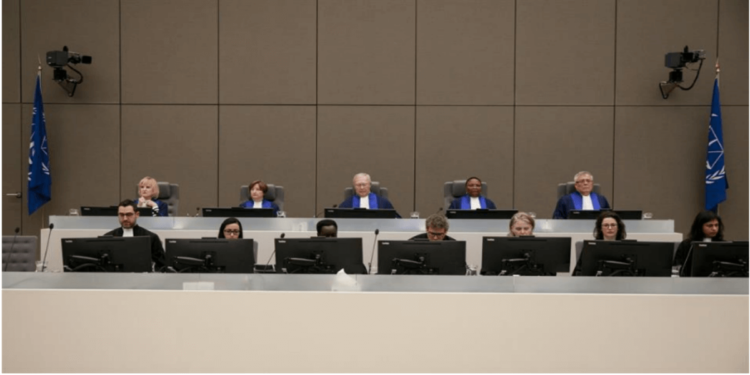By Susan Kendi
Convicted persons should pay the full amount of reparations for victims even if other individuals contributed to the harm suffered, the appeals chamber of the International Criminal Court has ruled.
Judges Howard Morrison, Judge Silvia Fernández de Gurmendi, Judge Sanji Mmasenono Monageng, Judge Christine Van den Wyngaert and Judge Piotr HofmaÅ„ski sitting on appeal of a Trial Chamber II reparations order upheld the decision in the Germain Katanga case.
Trial Chamber II had on March 24, 2017 issued an order for reparations for US$1,000,000 against Mr Katanga to 297 victims as a symbolic compensation award, with each victim due to receive 250 USD and collective awards in the form of housing allowance, education assistance, income generating activities and psychological rehabilitation.
The judges however noted that Katanga was destitute and r requested the Trust Fund for Victims to look into the payment of both awards. The Trust Fund’s board decided to provide the full amount of the reparations cost, US$1 million and also accepted the voluntary contribution of €200,000 from the Government of Netherlands.
On March 7, 2014, Katanga was charged with one count of crimes against humanity and four counts of war crimes including murder, attacking a civilian population, destruction of property and pillaging in connection with the war in Ituri District of the Democratic Republic of Congo. It was the first case in which the ICC Prosecutor charged crimes against humanity and sexual and gender based violence.
Katanga was sentenced to 12 years in prison, which was later minimized, winning his release on January 18, 2016.
Katanga had appealed against the reparations order on four grounds: use of presumptions in finding material harm for loss of livestock, fields and harvest, use of presumptions in finding psychological harm in certain family members, error in ruling ultra petita (not beyond the request), and link between culpability and the monetary liability of the convicted person.
The appeals chamber rejected the requests of Mr Katanga and of the Office of Public Counsel for Victims (OPCV), which had argued that the “Trial Chamber made a procedural error by not appointing a new lawyer for victims immediately after authorizing the Former Legal Representative to terminate his mandate in respect of the Concerned Victims.”
The judges sitting in appeal were concerned about how the Trial Chamber had addressed the reparations proceedings and its efficiency highlighting that general purpose of reparations is to focus on the cost to repair rather than the monetary value of the harm caused.
They requested the Trial Chamber to re-evaluate the question of the linkage between crimes for which Katanga was convicted, the psychological harm and whether the five applicants who claimed reparations for transgenerational harm suffered on account of their parents’ experiences during the attack should be compensated.







